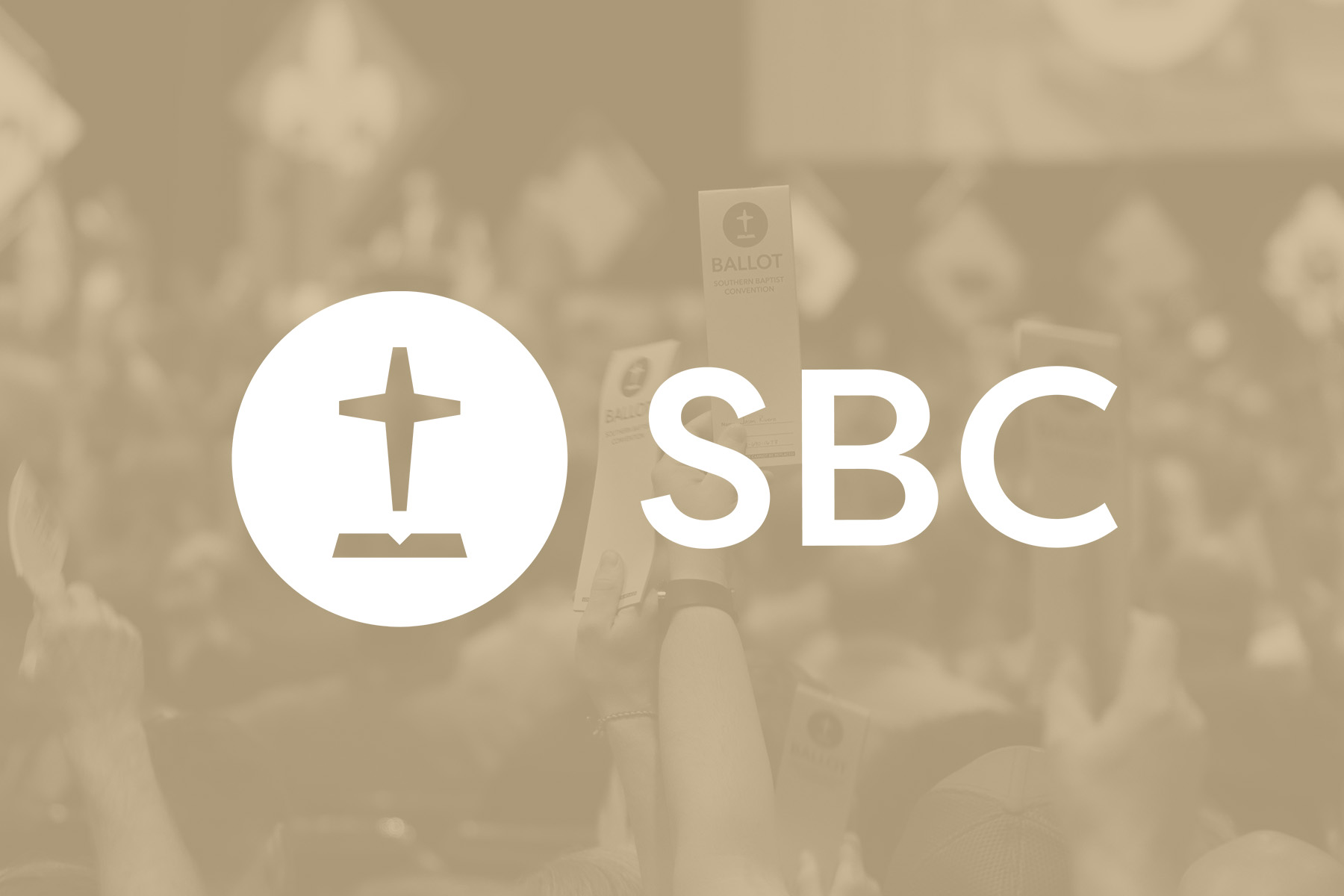By Jared Wellman
Baptist Press
What is the secret to realistically cultivating a spirit of cooperation across such a diverse Convention?
The musician Gavin DeGraw shares a story behind one of his most popular songs. During a challenging season of his life, he returned home and attended church with his mom. At the end of the sermon, the pastor posed a simple yet pensive question to the congregation: “Do you want to get back to God?” DeGraw did want to get back to God, and the experience inspired his first hit song, “Chariot.”
In the song, DeGraw uses figurative language to describe his distance from God. He tells about a day when he leaned against a tree and found himself staring at a maple leaf, which led him to think to himself how he had “lost touch.” He goes on to mention some favorite fruits like “chocolate-covered cherries and seedless watermelon,” and concludes with a key introspection: “Nothing from the ground is good enough.”
This poetic language might seem enigmatic, but DeGraw is talking about how he had replaced the natural with the unnatural—like a seedless watermelon, which doesn’t occur organically. Another way of saying this is that he realized he had come to love the secondary over the primary; DeGraw had lost his first love (Rev 2:4).
As the verse resolves, DeGraw looks up and notices a chariot above him, a metaphor for Elijah’s chariot (2 Kgs 2:11), which symbolizes God’s presence. He asks for the chariot “to guide me and give me your strength.”
As I consider this song in the context of the Southern Baptist Convention, it makes me wonder about instances when our love for secondary things eclipses our love for the primary thing, causing us to “lose touch” with the main thing.
This article suggests that the Southern Baptist Convention is secondary to the Kingdom of God.
This doesn’t mean the Convention is a bad thing to love, of course. It just means it’s like a chocolate-covered cherry: It’s tasty, but featuring it as the centerpiece of a meal is not natural and perhaps even unhealthy. It’s better served as a dessert, something that compliments the main dish.
Here’s a question that may help diagnose our own hearts: When it comes to the Christian faith, when we think about the things we think about, what do we think about most?
If our answer is the Southern Baptist Convention, then we might be indulging in too many chocolate-covered cherries and need to reconsider our spiritual diet.
Our Focus: The Great Commission
Here is the thesis of this article: The Great Commission was not made for the Southern Baptist Convention. The Southern Baptist Convention was made for the Great Commission.
This, of course, is inspired by Mark 2:27, where Jesus reminds us that “The Sabbath was made for man, not man for the Sabbath.” Here, Jesus shifts the focus from the ritual itself to the purpose behind it. Similarly, the Southern Baptist Convention was not established as an end in itself but as a means to fulfill the Great Commission. The Convention serves to support the goal of making disciples of all nations. Just as the Sabbath serves humanity by providing rest, the Convention exists to assist us in our mission to spread the gospel. When we remember this, we realign our priorities and resources toward what truly matters: advancing the kingdom of God.
What this means is that, ironically, the answer to the question “How can we realistically cultivate a spirit of cooperation across a diverse Convention?” is to focus not on the Convention itself, but on the Great Commission.
As ministers, our primary commitment is to our local ministries. If our attention shifts excessively towards the Convention, a two-day meeting that occurs once a year, we risk losing sight of our initial calling. It means, for example, if our social media presence becomes dominated by Convention-related content, it may indicate a misplaced prioritization. Similarly, creating new ministries or centers solely focused on Convention affairs may lead us yet another step away from our primary calling, something like the modern trend of watching someone play a video game. In such a case, we’re another step removed from reality. But God calls us to live fully in the real world, actively engaging with and impacting the lives of those around us.
Realigning with the Great Commission
Recently, I went to Belize on a mission trip and met a man named Balthazar. Balthazar had been a staunch atheist for most of his life. But after a near-death experience and the unyielding prayers and gospel witness of local Christians, he gave his life to Jesus. Since then, Balthazar has become a leader in his church. Not long ago, he donated half of his land so a church member could build a house on the property.
This act of generosity reminds me of the unity in the early Christian community, which was a result of the Great Commission. The book of Acts details the joyous outworking of Jesus’ command in Matthew 28:18-20. The Holy Spirit descends, Peter preaches, people are saved, and then “All the believers were together and had everything in common,” so much so, that they “sold property and possessions to give to anyone who had need . . . No one claimed that any of their possessions was their own, but they shared everything they had” (Acts 2:44-45; 4:32).
Balthazar’s selflessness mirrors the spirit of the early church, where believers willingly shared their resources to meet the needs of others. This stands in stark contrast to the prevailing culture of self-interest and competition over resources and influence. Balthazar’s story is a powerful reminder that when we focus on the Great Commission, we can experience transformative acts of love and generosity, bringing about supernatural harmony.
The point is that focusing too much on the Southern Baptist Convention can cause us to lose touch with the Great Commission and miss out on the unity it fosters.
The Place of our Confession
The Great Commission also helps us understand the place of documents like our Constitution and Confession. These documents are indeed good and necessary for the Southern Baptist Convention, yet we need to remember that, like the relationship of the Convention to the Commission, they were made for the Convention, not the other way around.
This is a critical arrangement because it reveals that churches are not tools for the Convention; the Convention is a tool for the churches. We cannot let the tool we made to serve the Great Commission take the place of the job itself. We cannot think more about the wrench than the house we’re striving to build.
This is why the constitutional phrase “closely identifies with” works. It’s not perfect, but it is sufficient. The language allows churches to remember that before they are a church cooperating through the Convention, they are a church created for the Great Commission (Matt 28:19-20; Mark 16:15; Acts 1:8; 2 Cor 5:20). Churches cooperating through the Southern Baptist Convention, therefore, don’t exist for the Southern Baptist Convention. Instead, the Southern Baptist Convention exists for its churches, who themselves exist for the Great Commission.
When it comes down to it, we don’t have a mission so much as the mission has us. A Great Commission focus allows us to put our differences into this transcendent perspective.
The Secret to the Southern Baptist Convention
So, how does this look practically?
In his book The Book of Basketball, the sports podcaster Bill Simmons discusses a concept he refers to as “the secret” to basketball. Simmons attributes the idiom to Isiah Thomas, a former point guard for the Detroit Pistons, and quotes him describing it: “It’s hard not to be selfish. The art of winning is complicated by statistics, which for us becomes money. Well, you gotta fight that, find a way around it.”
In other words, the secret to basketball is that it isn’t about basketball.
It’s about something bigger, something primary.
In the Epilogue, Simmons continues this parley with the late basketball superstar Bill Walton, who elucidates “the secret” by stating, “It’s not a secret as much as a choice.” Walton continues: “Look at the forces fighting against that choice. Look at the forces pushing you to make the other choice, the wrong choice. It’s all about you. It’s all about material acquisitions, physical gratification, stats, and highlights. Everywhere you go, you’re bombarded with the opposite message of what really matters.”
Walton is emphasizing the pressures and influences that steer individuals away from making the right choice. He is showing how pursuing the primary thing doesn’t come easily, because the secondary things look as delicious and convenient as a seedless watermelon. But, this kind of diet will cause a host of health issues.
The secret to a successful Southern Baptist Convention lies in choosing to prioritize the bigger picture—the Kingdom of God primarily through local ministry—and allowing the Southern Baptist Convention to succeed because of that focus. The Kingdom of God isn’t built in the two days the Convention meets a year. It’s built during the other 363 days. It happens in our weekly worship services, counseling sessions, discipleship meetings, visitations, mission trips, and around the family dinner table.
All of this is to say that the secret to a successful Southern Baptist Convention is that it isn’t about the Southern Baptist Convention. It’s not about Convention stats or highlights. It’s not about passing a certain resolution, updating a bylaw, or, Lord help us, creating a new Task Force.
Our Convention serves a greater purpose. It is not an end in itself but a means to support the mission Jesus gave us. By keeping our eyes on the mission, we can nurture a spirit of cooperation that transcends our differences, unites us in our shared purpose, and, as DeGraw sings, ride upon the golden waves of God’s chariot.
In addition to Jared Wellman, this essay was co-written by Cooperation Group members Donna Gaines, Victor Chayasirisobhon and Gregory Perkins.








